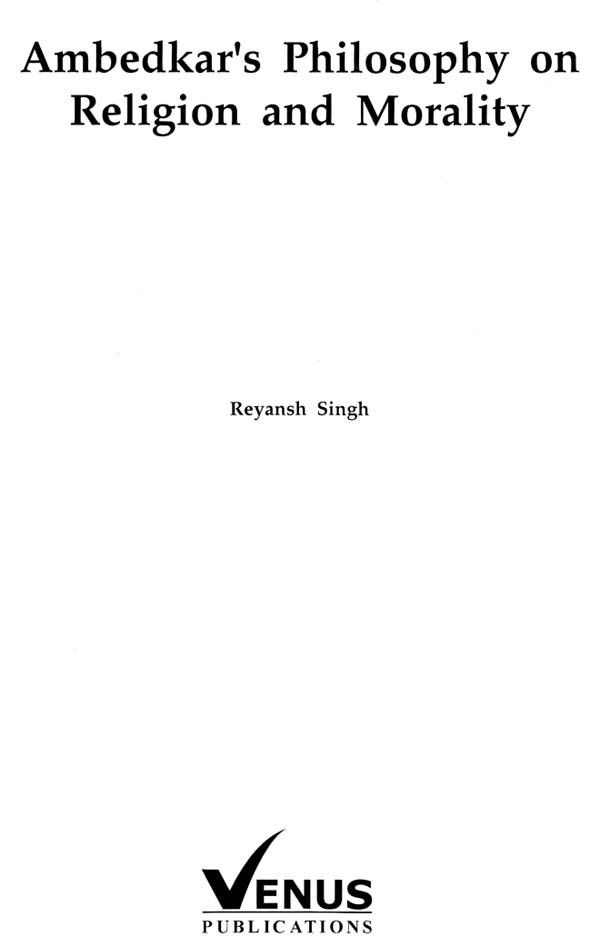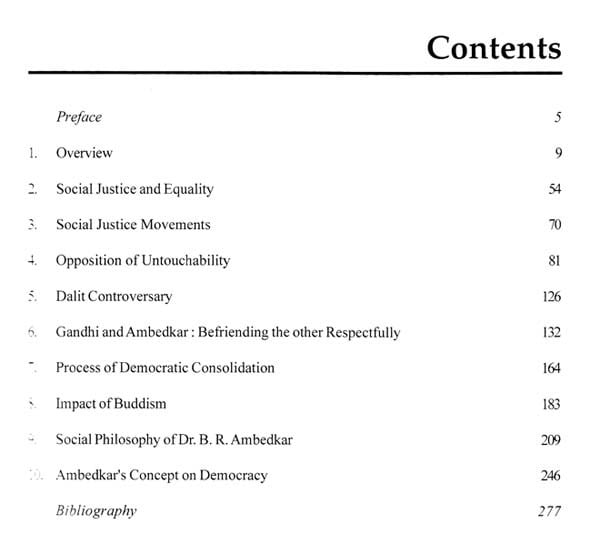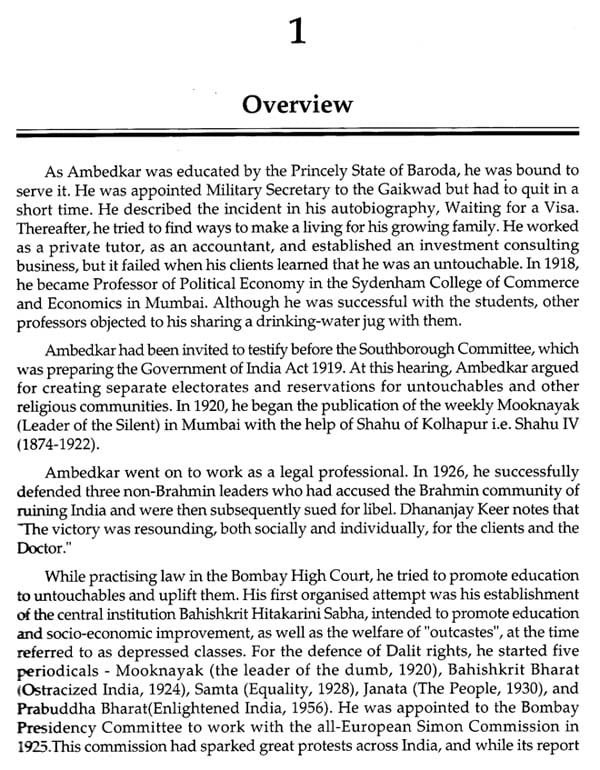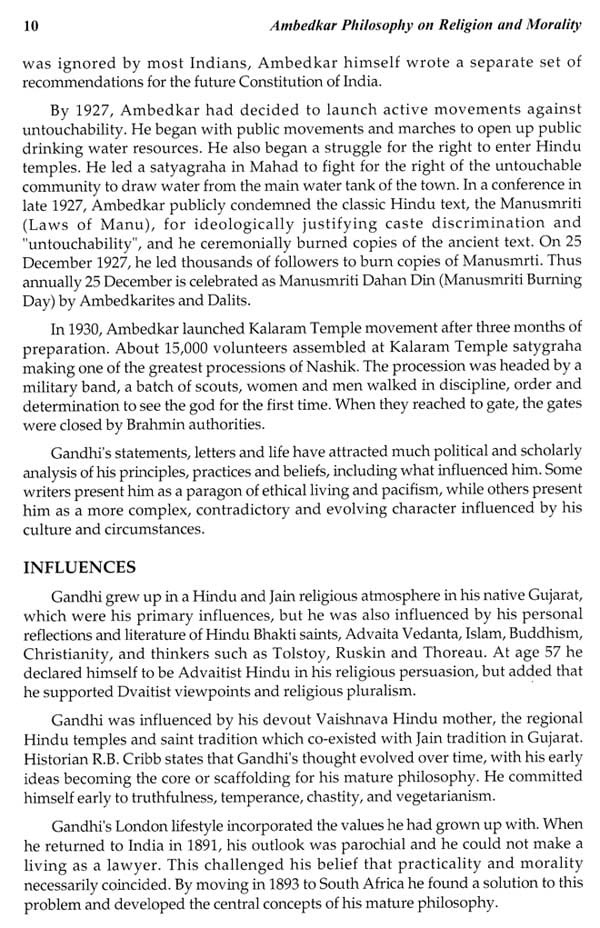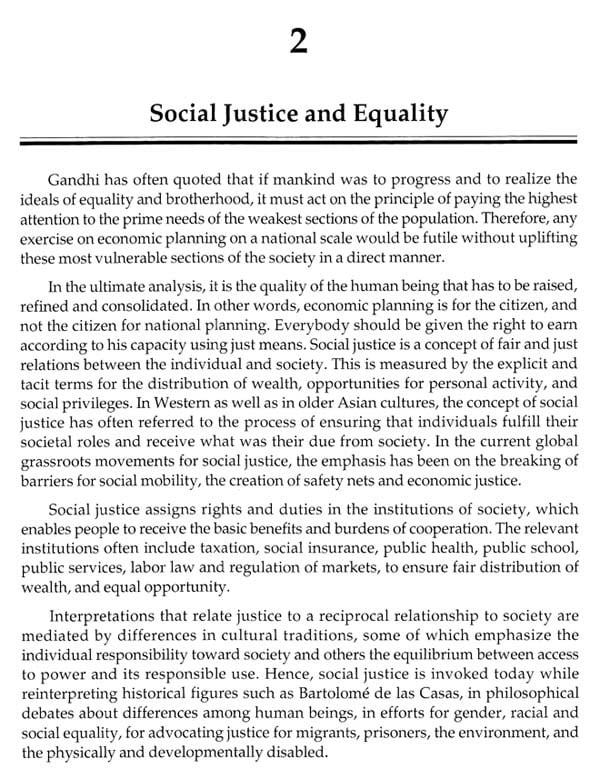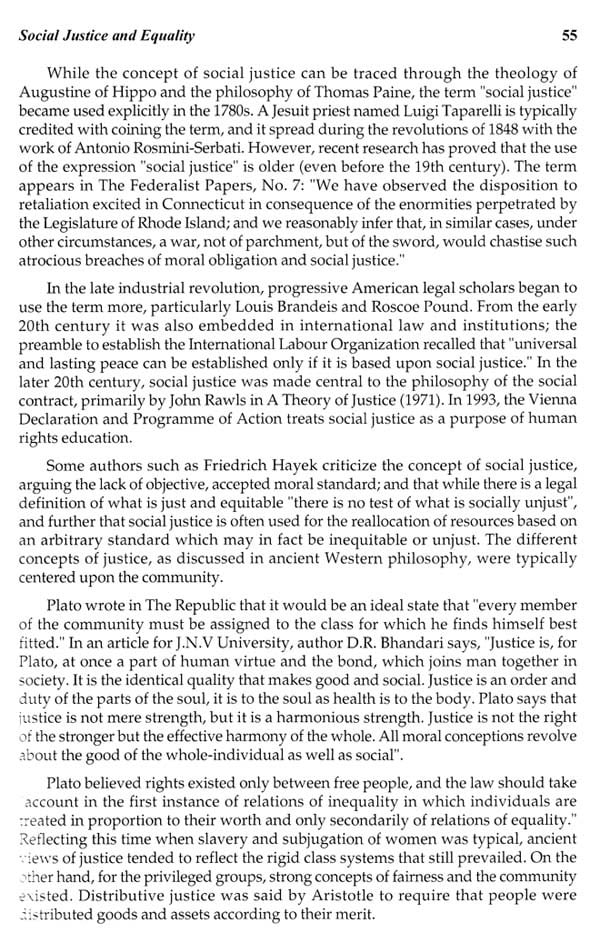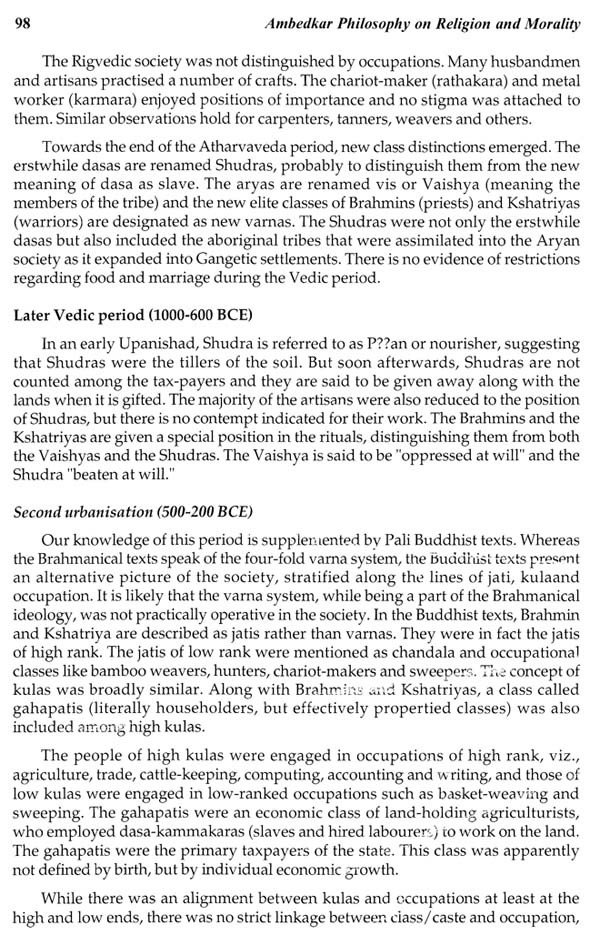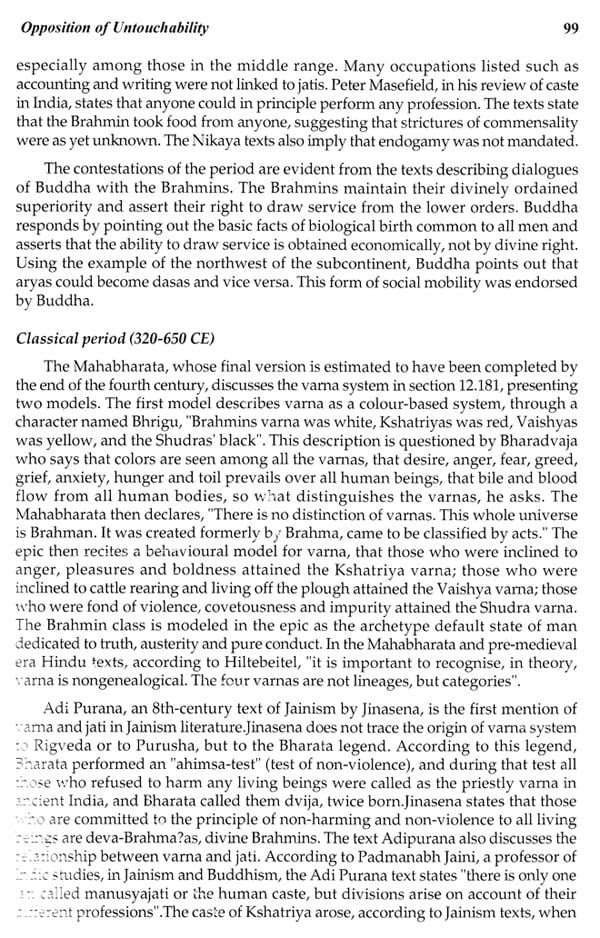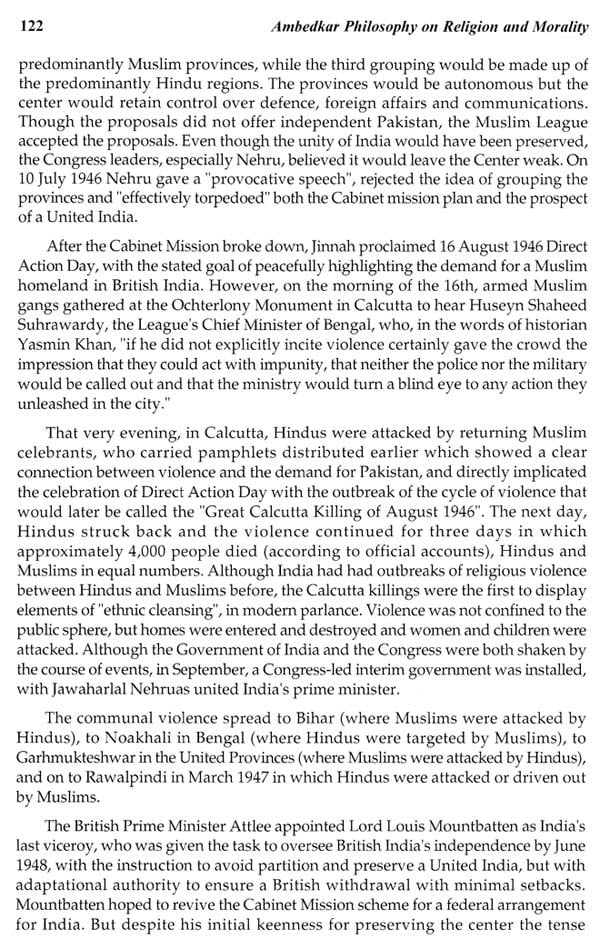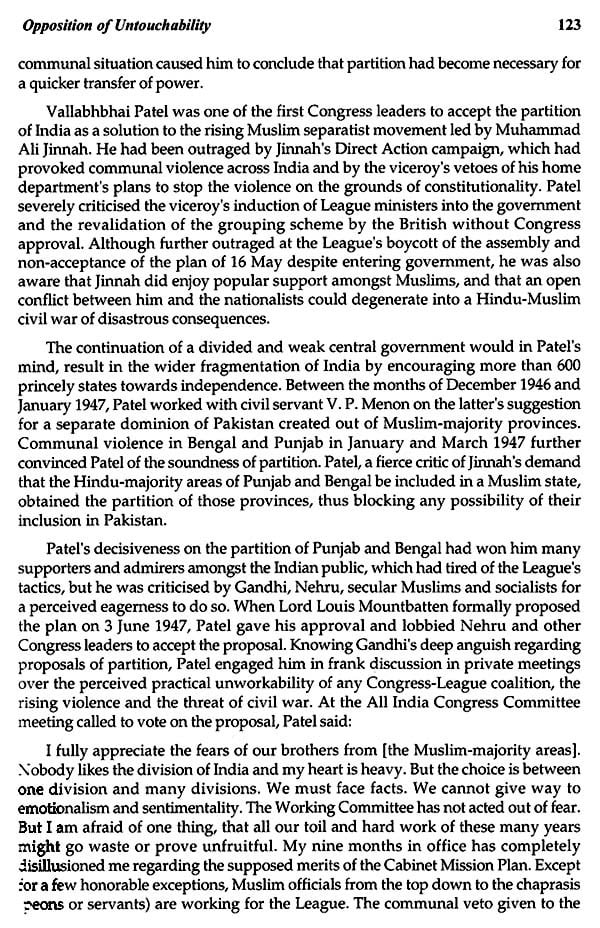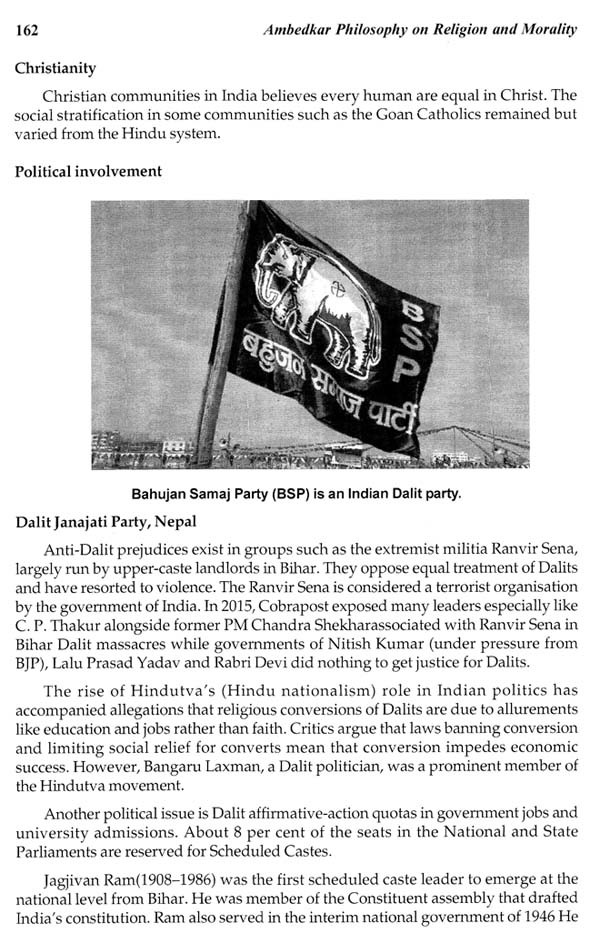
Ambedkar's Philosophy On Religion And Morality
Book Specification
| Item Code: | UAR457 |
| Author: | Reyansh Singh |
| Publisher: | Venus Publications, Delhi |
| Language: | English |
| Edition: | 2019 |
| ISBN: | 9789387851030 |
| Pages: | 278 |
| Cover: | HARDCOVER |
| Other Details | 9.50 X 6.50 inch |
| Weight | 570 gm |
Book Description
As Ambedkar was educated by the Princely State of Baroda, he was bound to serve it. He was appointed Military Secretary to the Gaikwad but had to quit in a short time. He described the incident in his autobiography, Waiting for a Visa. Thereafter, he tried to find ways to make a living for his growing family. He worked as a private tutor, as an accountant, and established an investment consulting business, but it failed when his clients learned that he was an untouchable. In 1918, he became Professor of Political Economy in the Sydenham College of Commerce and Economics in Mumbai. Although he was successful with the students, other professors objected to his sharing a drinking-water jug with them.
Reyansh Singh (born on 9th August, 1970) has served as a professor for 11 years. He received B.A. Political from University of North Bengal, Siliguri, West Bangal. After his BA, he opted for masters degrees in Political Science from Presidency University, Kolkata, West Bengal. Then he received Ph.D. (Political Science) degree from University of Kalyani, Kalyani, West Begal. He is also a member of a famous Computer Society. He has been a consultant and visiting faculty of various prestigious institutes of the country. He has written many books on Indian Polity and Public Administration. Several fellowships, awards and honours have been conferred upon him by national and international organisations for his outstanding research contributions in the field of Public Administration.
Dr. B.R. Ambedkar was a rarity in our polity. He had to fight against heavy odds, being a Dalit, and facing poverty, humiliation, social deprivation and other forms of injustice and segregation. He fought his way up on the ladder of politics and gave himself a good education both in India and abroad. He got a Ph.D. from Columbia University and a D.Sc. from the London School of Economics, the first Dalit to do so. During his stay in the U.S., he observed the living conditions of African-Americans in Harlem. He realised there was a similarity between untouchables in India and the blacks in the U.S., but that untouchability was "far worse than slavery."
When Ambedkar became a staunch defender of Dalit rights, he had to contend against Mahatma Gandhi whose views on Hindu society were at variance with his. Gandhi had an overarching view of Hinduism and pleaded that it was the duty of those in the Hindu fold to safeguard interests of all its members, including Dalits. It was a clash between two values which led to a political malaise over the reservation issue for years until it was resolved after Independence with the adoption of the Constitution, which Ambedkar helped draw up. Sadly, during his lifetime, neither his intellectual rigour nor political sagacity received recognition.
In recent years, Dalit scholars like Narendra Yadav, Anand Telumbde and Gail Omvedt have tried to make amends. In his detailed narrative, which was in the works for 15 years, Raja Sekhar Vundru deals with an important aspect of Ambedkar's life his role in devising our electoral system. Decades after Mandalisation and reservation conceded by successive governments, it seems unbelievable that there were such lengthy debates and differences, including mistrust, over the issue. As part of constitutional reforms, the British were keen to bring about adequate representation to different religions and groups in the legislatures at the Centre and in the States and broker a deal. There were three Round Table Conferences held in London-Ambedkar attended all the meetings while Gandhi attended only the second. Vundru meticulously records the developments both in formal and informal sessions. There were often open, verbal clashes between Ambedkar and Gandhi.
**Contents and Sample Pages**
